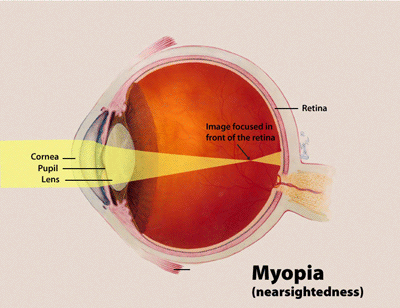Top 9 Foods Recommended by Experts to Alleviate Headaches and Migraines

In the quest for effective migraine and headache relief, dietary choices play a pivotal role. Recent insights from a variety of health professionals indicate that incorporating certain foods can significantly mitigate the frequency and intensity of these debilitating conditions. This article explores nine foods that have garnered the endorsement of dietitians and medical experts alike, along with the scientific rationale behind their effectiveness.
### Understanding Headaches and Migraines
Headaches and migraines are complex disorders characterized by recurrent head pain that can have various triggers, including diet, stress, and hydration levels. According to Dr. Nicholas Church, a board-certified member of the American Board of Family Medicine, "Migraines are highly individualized, and what helps one person may not help another. A holistic approach is best, as hydration, exercise, sleep, and stress management all play crucial roles."
Maintaining a detailed headache diary can help patients identify specific food triggers and effective dietary interventions. This article details nine foods that experts recommend for alleviating headaches and migraines, supported by scientific studies and expert opinions.
### 1. Omega-3-Rich Foods Dr. Nicholas Church recommends omega-3-rich fish such as salmon, mackerel, and sardines due to their anti-inflammatory properties. A 2021 randomized controlled trial highlighted that regular consumption of omega-3 fatty acids can reduce the frequency and intensity of migraines by influencing inflammatory and vascular changes in the body (Church, 2021).
### 2. Magnesium-Rich Foods Magnesium plays an essential role in reducing migraine severity. Research led by Daniel Redwood, Director of Human Nutrition at the University of Western States, indicates that individuals with migraines often exhibit lower magnesium levels. Foods high in magnesium, such as pumpkin seeds, spinach, and kale, are recommended for their potential to alleviate migraine symptoms (Redwood, 2022).
### 3. Ginger Dr. Maria Knöbel suggests ginger for its anti-inflammatory effects and ability to reduce nausea associated with migraines. A 2014 study found ginger powder to be as effective as sumatriptan, a common migraine medication, but with fewer side effects (Knöbel, 2014).
### 4. Nuts and Seeds Dr. Church also recommends nuts and seeds, which are rich in magnesium and vitamin E. A study published in 2015 established that these nutrients could play a role in reducing menstrual migraines (Church, 2015).
### 5. Cinnamon Cinnamon, noted for its antioxidant properties, has been linked to reduced headache frequency. A randomized, double-masked trial in 2020 suggested that cinnamon supplementation could lower inflammation related to migraines (Campbell, 2020).
### 6. Foods Rich in Vitamin B2 Riboflavin (vitamin B2) has shown promise in reducing migraine attacks. A well-known trial from 1998 demonstrated that a daily intake of 400 mg of riboflavin substantially reduced migraine frequency (Church, 1998). Foods like eggs and dairy are excellent sources of this vitamin.
### 7. Turmeric The active compound in turmeric, curcumin, has demonstrated antioxidant properties that may assist in managing migraines. A study in 2021 found that combining curcumin with omega-3s could be a promising approach for migraine management (Campbell, 2021).
### 8. Whole Grains Whole grains such as oats and brown rice provide a steady glucose release, preventing blood sugar fluctuations that can trigger headaches. A 2023 study indicated that increasing fiber intake could reduce the odds of severe headaches by 11% for every additional 10 grams consumed (Church, 2023).
### 9. Water-Rich Foods Dr. Kimberly Idoko emphasizes the importance of hydration in preventing headaches. Water-rich foods like watermelon and cucumbers not only help maintain hydration but also contribute to overall well-being (Idoko, 2023).
### Conclusion Incorporating these nine foods into one’s diet can be a strategic approach to reducing the frequency and severity of headaches and migraines. Each food offers unique health benefits supported by scientific research and expert recommendations. However, it is essential for individuals to consider their personal triggers and consult healthcare providers for tailored advice. As Dr. Church summarizes, "A balanced approach that includes diet, hydration, and stress management is crucial for effectively managing headaches and migraines."
By prioritizing nutrition and making informed dietary choices, individuals may find significant relief from the challenges posed by migraines and headaches.
Advertisement
Tags
Advertisement





